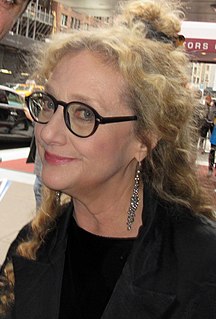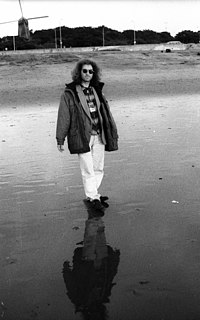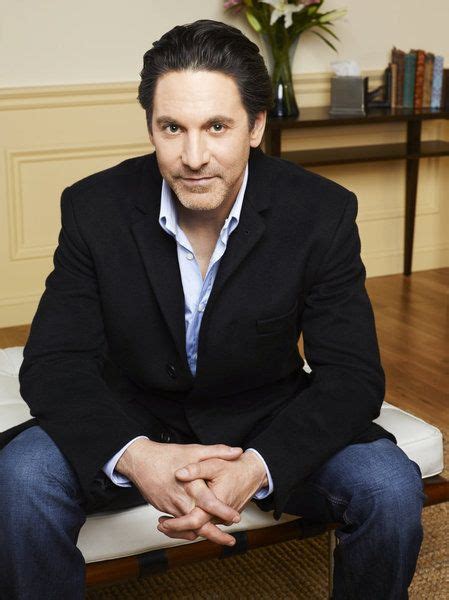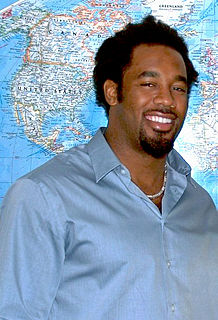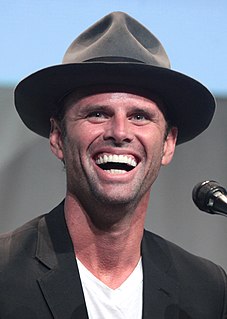A Quote by Holly Hunter
The unknown makes people uncomfortable. And even living in a city that's as cosmopolitan as New York City is, there's so many things I don't know about other cultures, even though I encounter other cultures - maybe even 18 or 19 of them - when I get on a subway car every day.
Related Quotes
As a lover of New York, I hope New York remains as successful as a city, even though the very groups on whom the city depends - like artists - are not finding it easy to stay here. That's what it's been about, really, since the 1980s. You can kind of see that coming in the 1980s even though the rents were ridiculously low compared to what the rents are now.
LA isn’t a walking city, or a subway city, so if someone isn’t in my house or my car we’ll never be together, not even for a moment. And just to be absolutely sure of that, when I leave my car my iPhone escorts me, letting everyone else in the post office know that I’m not really with them, I’m with my own people, who are so hilarious that I can’t help smiling to myself as I text them back.
Of course, in Los Angeles, everything is based on driving, even the killings. In New York, most people don't have cars, so if you want to kill a person, you have to take the subway to their house. And sometimes on the way, the train is delayed and you get impatient, so you have to kill someone on the subway. That's why there are so many subway murders; no one has a car.
It's not as though there aren't many, many art works and many other cultures, but there was something special about the civic nature of the Greek theater. All the citizens stopped working. They came into these theaters. It wasn't like a Broadway theater where you sit in the dark and you expect to be passively entertained. You're in this theater, amphitheater, in bright sunlight looking at your fellow citizens, recognizing their faces, and thinking with them about the future of your city. I think very few cultures have had a theatrical tradition that is quite so civic.
In a city like London, the fact that cultures live together and cross-fertilize is a beautiful and natural thing. The many cultures in Amsterdam contribute to the city's high level of craziness - something which every interesting city should offer. But sometimes immigrants can live in parallel worlds which can exclude others and not be very attractive.
New York is just New York. It's a hard city, it's a hard city to live in. It's a desperate city. It's filled with scam artists and people who are always looking for a way in and a way out and the majority of people have to really negotiate their way through that jungle to get to the other side; the other side being a place of tranquility and peace and home and safety.
I feel the change. I feel the relationship with New York changing. It's a personal relationship you have with the city when you move there. I definitely romanticize the early 2000s. As much as I prefer the city then as opposed to now, I'm sure if I were 23 and I moved to the New York of right now, I could have the same exact experience. I don't really hate the cleaning up of New York, even though it's not my preferred version of New York.
You know, when Sharpton and I walked in, it was, like, big commotion and everything, but everybody was very nice. And I couldn't get over the fact that there was no difference between Sylvia's restaurant and any other restaurant in New York City. I mean, it was - it was exactly the same, even though it's run by blacks, primarily black patronship.
I sometimes look at the careers of other... I guess I could call them contemporaries or maybe close artists; you know, the 4 or 5 guys who go to New York City and get a loft and work together and use each other as models and that sort of thing and wait for years and years to get married. Maybe I just wasn't that definite.
It's about something that I'm extremely passionate about: exploring other cultures, how Americans are perceived by other cultures and how we perceive other cultures through our worldview. I travel whenever I get an opportunity to do so, and I think this country is ready for a show on television that is bilingual and really puts front and center another culture, both as the protagonist and the antagonist.








